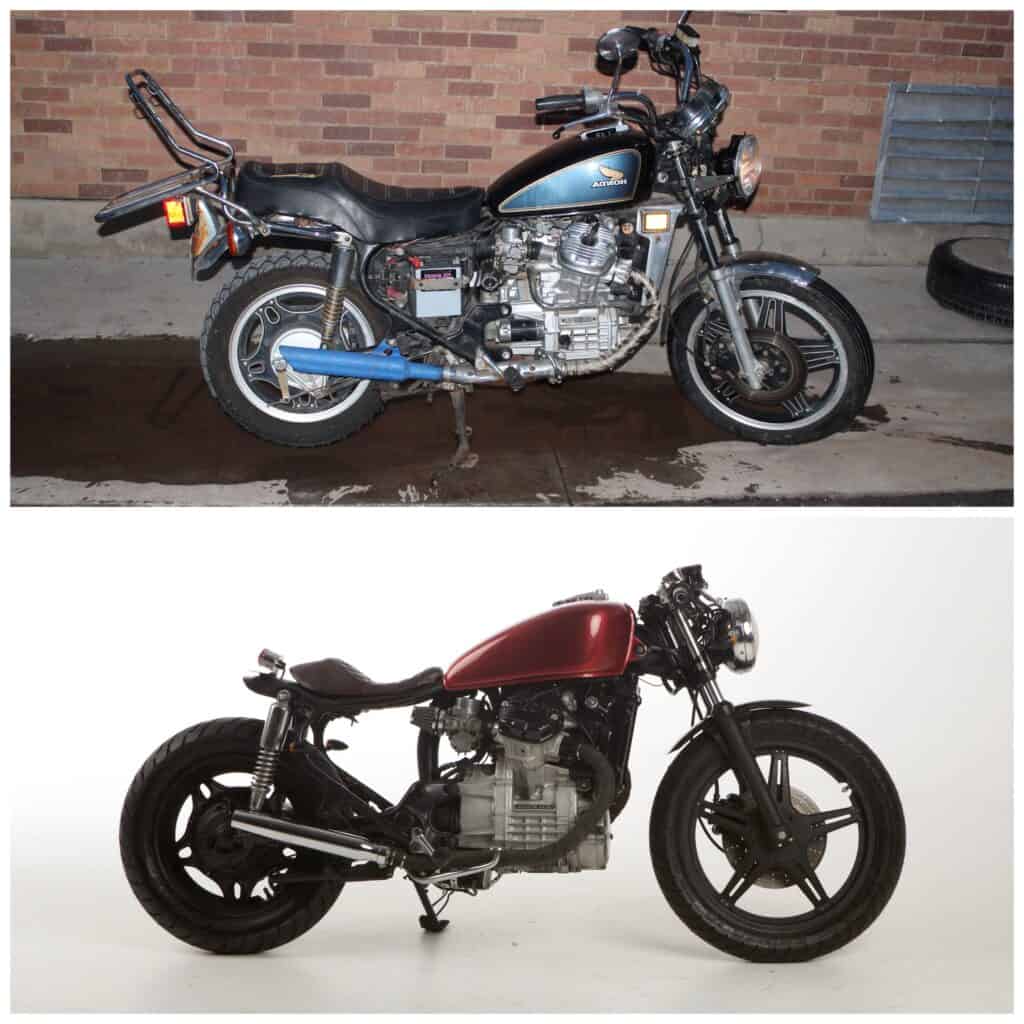
You’ve probably heard of a person or two who has made a pretty penny by flipping motorcycles. The idea of it sounds quite enticing especially watching someone else doing it and seeing how simple it can be.
There are a lot of questions that are asked about a process like this. The main question most people wonder about is whether or not flipping a motorcycle is legal.
Is it legal to flip a motorcycle? It is legal to flip a motorcycle as long as you register and title it under your name and pay the appropriate sales tax before selling it. Each state has a specific amount of vehicles you can legally sale within 12 months. If you wish to sell more motorcycles than what your state permits, you will need to obtain a dealer’s license.
I personally have been successful flipping motorcycles on the side for about 10 years. It can be easily done and there is money to be made, but it’s important you comply with your state’s law so you don’t get in trouble. This article can explain everything you need to know about how to legally flip a motorcycle.
Legality Of Flipping A Motorcycle
Having done this process about 20 times myself, I know the exact process it takes to legally flip a motorcycle for a profit. To flip a motorcycle means to buy a motorcycle at a certain price, genuinely fix it up, and sell it for more than you put in to it so you gain a profit.
But there are legal limits when it comes to pursuing an activity like this. This is a good way to earn money on the side, but certain licenses and certifications have to be obtained if you wish to make this your full-time income.
Before you consider getting into the motorcycle flipping business, you’ll need to check with your state’s law and see how many vehicles you can sell within a 12 month period. Some states will only allow you to sell 1-2 vehicles a year and others will allow up to 10-12. Please note that selling your car, ATV, or other motorized vehicle within the same 12 month period counts as a vehicle sold from you.
Once you have checked with your state’s limits and have confirmed that you can sell a motorcycle within those limits, you can go ahead and start looking for a motorcycle to flip. You can check out my list here that discusses the best motorcycles to restore. Once you purchase a motorcycle, you must take the proper documents to your local DMV and get it registered under your name, get a new title with your name on it, and pay sales tax. You cannot skip this step if you wish to remain legally compliant with this process.
A lot of states will require you to get motorcycle insurance before registering it. You can see a list of motorcycle insurance agencies near you by clicking here and compare rates suitable for you. Motorcycle insurance is something you can quickly get and easily cancel once you sell your motorcycle.
After you get it registered, you may begin making your modifications to the motorcycle. Flipping a motorcycle does not mean you buy a motorcycle, make cheap fixes, and sell it with a bunch of problems that you lie about. Flipping a motorcycle means you buy a motorcycle, actually make it look and work better, and sell it for an honest profit. Don’t be one of those flippers who sells a lemon.
This is usually considered an acceptable practice to do on the side and can be done a few times a year. But if you’re serious about doing this more than a few times or even making a serious income from it, you’ll need to obtain a dealer’s license. A dealer’s license enables you to buy and sell as many motorcycles (or vehicles) as you would like within a 12 month period without any legal limits.
What Is Considered Illegal When Flipping Motorcycles?

There are a few things some have done that is considered illegal in most states when it comes to flipping motorcycles. It’s best you’re aware of what’s illegal so you don’t find yourself accidentally doing it.
First, you should not sell more vehicles than your state permits within a 12 month period. This doesn’t mean from January to December, it means any part of the fiscal year. You need to space yourself out and stay in compliance with your state’s law. The DMV can track how many motorcycles you’ve sold by the titles people submit with your name on it.
For example, in Utah where I live, you can legally sell 2 vehicles per year. I also lived in Idaho where it is legal to sell 4 a year and in Mississippi (where I also lived) it is also 4 a year.
A common practice among those who flip motorcycles is buying a motorcycle and not registering it or paying sales taxes and selling it before doing so. This is called “curbstoning” and is considered illegal in most states. The difficult part about it is that people do this all the time without even knowing they’re doing something illegal. You must register, title, and pay taxes on every single motorcycle you purchase and flip.
Lying about the functionality and specs of the motorcycle you’re trying to sell is also illegal. This also falls under the definition of curbstoning because you’re ultimately trying to make a buck off of a dishonest sale.
By selling too many vehicles within 12 months without a dealer’s license, not registering or paying sales tax, and getting complaints about selling lemons could get you a hefty fine from the state. In some cases, it’s possible to even face some jail time. If you’re going to do this, make sure you do it right and are compliant with your state’s laws.
What You Should Know About A Dealer’s License
If you’re interested in flipping and selling more motorcycles than what your state allows, your best route is to get a dealer’s license. Each state is a little different with their rules and regulations to get a dealer’s license, but most of them have the same basic set up.
Note that there are several types of dealer’s licenses such as new or used car, wholesale, and motorcycle licenses. Figure out which type of license is best for you and pursue that license accordingly. You’ll need to contact your local DMV to fill out a dealer’s license application. Depending on the state, it could be one application or up to 5 applications.
Your state will then conduct a background check which will likely require that you get your fingerprints done. If you have any felonies on your record, that doesn’t necessarily mean you can’t get a dealer’s license. You’ll likely be able to proceed if your criminal record didn’t have to do with vehicles.
Some states require that you have a business location in order to get a dealer’s license. And your garage or shed doesn’t count. It needs to be a location zoned specifically to sell vehicles.
Lastly, you’ll also need to purchase some sort of Motor Vehicle Dealer bond. This is a way to protect your customers in case you are dishonest with them and they have a way to make a claim against your business. A Motor Vehicle Dealer bond can be around $75,000 and a Motorcycle Dealer bond can be around $10,000.
So as you can see, obtaining a dealer’s license isn’t necessarily easy but it should be seriously considered if you’d like to make a good income from flipping motorcycles. Otherwise, plan on doing only a few throughout the year and remain legal within your state’s limits.
A Few Tips To Properly Flip A Motorcycle
There are a few vital steps that need to be taken when flipping a motorcycle. First, you’ll need to understand your skill set and know what you are and are not capable of fixing yourself. Look at motorcycles to buy according to what you’re willing to repair.
Budget is a huge part of the motorcycle flipping business. If you don’t sell it for more money than you spent, the flip is considered a fail. Make a budget of how much you’re willing to spend and become familiar with how much certain fixes will be.
Take your time when looking for a motorcycle to flip. If you wish to make money, you need to be patient and wait for the right motorcycle to show up for sale. The right one will come along if you wait long enough. For more information about how to flip a motorcycle for a profit, see my other article by clicking here.
Conclusion
Flipping motorcycles is a great path to pursue, however, it’s crucial to familiarize yourself with the laws and regulations governing vehicle sales in your area to avoid potential legal issues. Practicing honesty and transparency in your transactions is essential for maintaining a positive reputation and ensuring customer satisfaction.
Having done this many times myself, I can attest to the success of this and sincerely hope you find great success as well! Please reach out if you have question!
